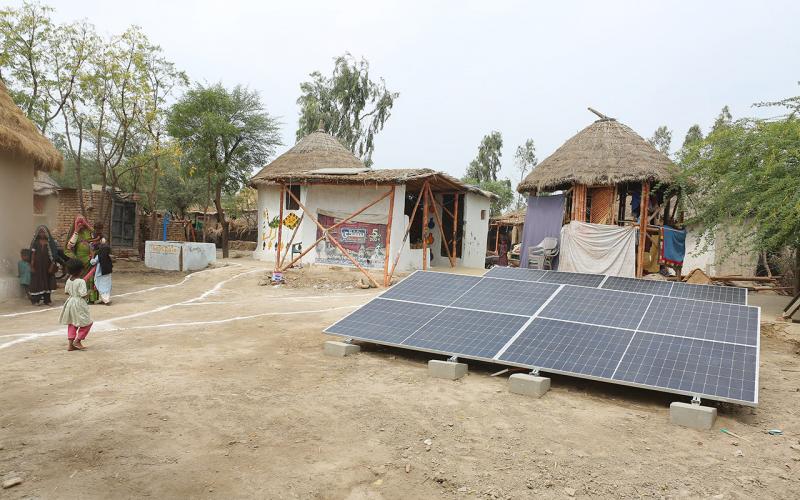by Laurie Zuckerman
Solar-powered revolution
The storm hit, and the power went out. I wondered, Will it be restored before nightfall? My husband’s medical equipment depends on electricity to help him breathe while he sleeps. Fortunately, we’re lucky enough to have solar panels and a backup battery to get him safely through the night.
Meanwhile, the drought in Ecuador rages on. Without water to supply the hydroelectric system, my friends Wilson, Pablo, and their communities endure blackouts that stretch over eight hours each day, impacting their homes, families, and businesses. Could solar play a part in adapting to this drought?
What about you? What happens when your power goes out? How does it affect your health and livelihood?
As climate change leads to more extreme weather, Rotary clubs are working together to provide 700 million people worldwide with access to clean, renewable energy. By incorporating solar panels into your Rotary projects or donating panels to those in need, you create lasting change.
Solar power both mitigates the cause of the climate crisis and helps us adapt to its growing challenges. The climate crisis is worsening, and the question now is: how do we adapt today? What steps can we take to transition to more sustainable energy sources? It’s time to think long-term.
Each situation is unique. For inspiration, look at the Climate-smart communities bloom in Pakistan, where solar power plays a key role. Ask your District Foundation Chair about solar and other clean energy projects. Also, check out ESRAG’s Raise for Rotary initiative, which supports projects that sequester or prevent carbon pollution.
Partnerships can make a difference
What about solar as backup power in your neighbourhood or city? Rotary International’s partnership with Habitat for Humanity offers a pathway to make this happen. Your Rotary Club can team up with Habitat to install solar panels on low-income homes and community centres. ESRAG’s Renewable Energy Task Force is ready to help Rotary clubs bring solar energy to those who need it most.

Installing of Solar Panels
Then there are the bigger questions: How do we push governments and companies to embrace the inevitable transition to clean energy? Rotarians have a role to play here too, advocating for policies that protect human life and align with the 4-Way Test. For inspiration, watch ESRAG’s 90-second Climate Action Policy Video. Please, explore the movements working toward positive, sustainable change in your region.
The bottom line is clear: it’s not if humanity will transition to clean energy, but when. What will be your next step to help make that transition a reality?
Be part of the solution: https://esrag.org/million-solar-panel/ or visit bit.ly/ESRAG_MSPC.

